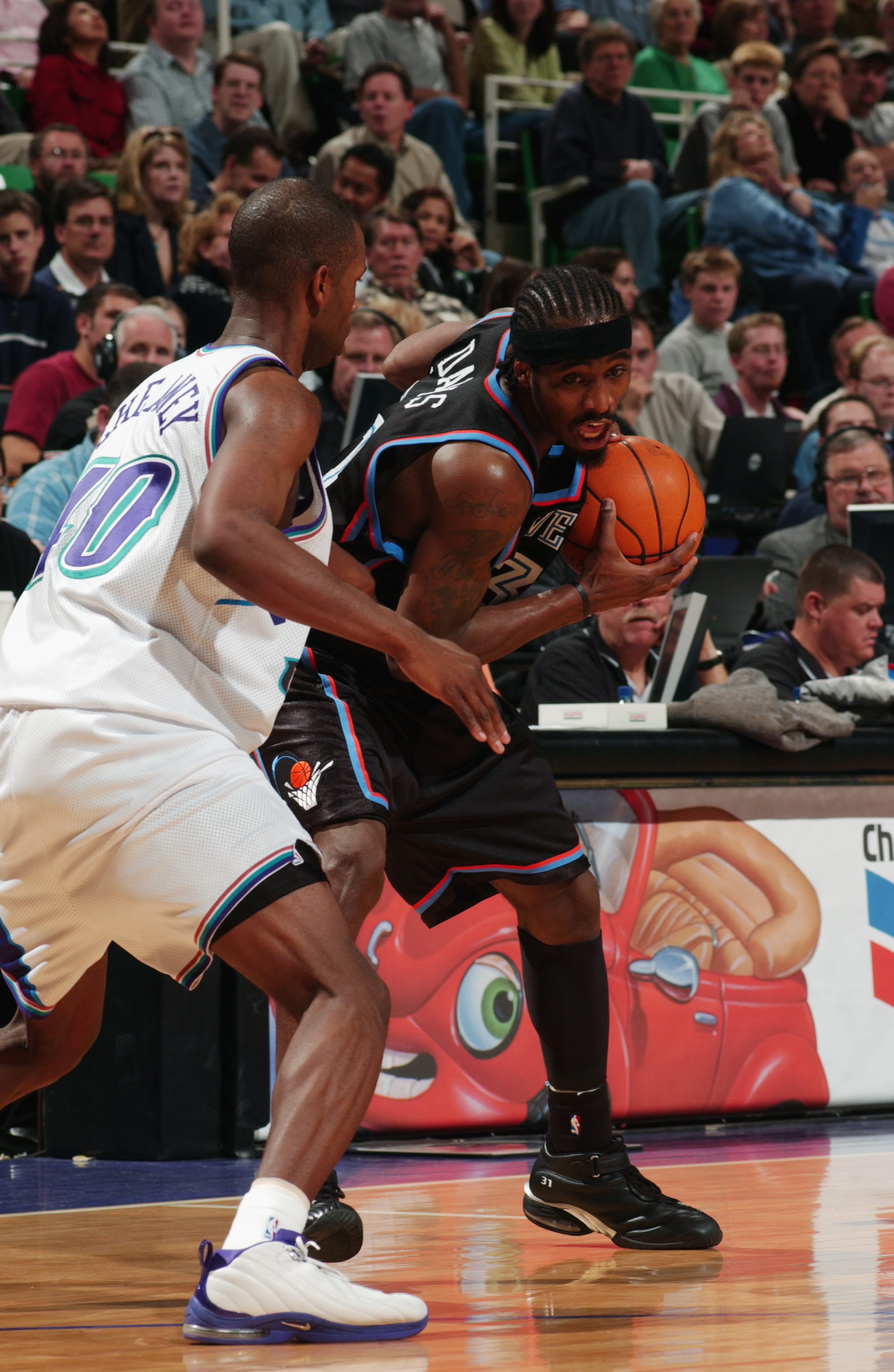
The triple-double has never guaranteed a win or a championship. Yet, the NBA world's fetishization of stats—not to be confused with the catch-all term old heads deride: analytics—has elevated the triple-double to a monolith of all-around excellence. Because of this, Russell Westbrook's breaking of Oscar Robertson's 60-year-old record for triple-doubles in a single campaign and his season-long average of 31.6 points, 10.7 rebounds, and 10.4 assists was the storyline of the regular season. But the veneration of the triple-double across the NBA landscape hurts the game in the long run, and it might even exclude #WhyNot Russ from MVP.
The difficulty in attaining a triple-double, let alone averaging one, speaks to its hallowed place in modern NBA lore. (This wasn’t always the case, but don’t you dare blame Ice Cube). Double digits in three or more of the traditional counting stats—points, rebounds, assists, blocks, or steals—in a single game is hard, but to do so at the NBA level for an entire 82-game season used to be thought of as impossible. Except, the unfathomable season Russ just put forth has been clouded by talk of triple-doubles, and for the rest of the league it’s an ominous storm.
The unequal footing fans give the triple-double doesn’t translate when you hear people pop off about the MVP on Twitter. Most national media with a vote don’t give the stat as much clout as the average fan, and they shouldn’t.
The moment we elevate a statistical total—no matter how improbable—above the result of the actual game, the game itself becomes debased. No one knows this better than Russ, who tried to shut down the incessant talking point back in December, snapping at reporters, “I really don’t care. For the hundredth time. I don’t care. All I care about is winning, honestly. All the numbers shit don’t mean nothing to me.”
But that claim is disingenuous. Just ask every rebound from an opponent's missed free throw corralled by No. 0 with Steven Adams, Andre Roberson, and Enes Kanter blockading the paint like it was their point guard’s turn at SpikeBall.
But Russ isn't the only one to upend what makes basketball so amazing by gunning for a triple-double. Draymond Green, the team-first Swiss Army Knife who, in our opinion, is the best defender in the game today, admitted to hurting his Warriors by chasing a triple-double last season. He knew it had impinged on his ability to just play.
Up big in the third quarter in a game against the 76ers, he made a concerted effort to notch another triple-double. “We started turning the ball over due to my selfish unselfishness, and it was all downhill from there,” Green said of his actions. When he was asked about his attempt for that final assist, he was almost embarrassed: “Could you tell? It looked bad. It felt bad.”
That's the biggest problem when the triple-double becomes the whole exercise. Draymond isn’t the only one to lapse into this type of thinking, and he’s certainly not the most overt example. That distinction belongs to Ricky Davis, or—for the younger readers—Nick Young before Nick Young.

In 2003, holding a 25-point lead late in the fourth against the Utah Jazz, Ricky shot at his own basket to get his final rebound for a triple-double. DeShawn Stevenson fouled him rather than let it happen.
“I was proud of DeShawn, and I would have knocked him down harder,” then-Jazz coach Jerry Sloan said. “They can put me in jail for saying that, but that's the way it is.”
But Ricky isn’t the only one to break unspoken rules of sportsmanship in a selfish attempt for a triple-double. Nic Batum, Bobby Sura (on the cusp of his third in three games—how quaint!), and of course JaVale McGee have all gone to outrageous lengths for that coveted statline.
It’s demeaning. The players themselves know this, too. Like Draymond, Batum was besieged with grief when he realized he’d knocked down a 40-footer at the buzzer with his team up by seven: “That is maybe the worst thing I’ve done in my career,” he said right after the game. And this was a year after he punched Juan Carlos Navarro in the nuts during the Olympics.
The unequal footing fans give the triple-double doesn’t translate when you hear people pop off about the MVP on Twitter. Most national media with a vote don’t give the stat as much clout as the average fan, and they shouldn’t when you realize James Harden’s per-48 minute numbers compare favorably with Russ. It’s the impetus for the backlash against his MVP campaign.
Ironically, Russell’s triple-double lodestone has actually hurt him like it has the game. We’ve become so wrapped up in the statistic, the blood, guts, energy, and incredible stamina to maintain his level of production throughout this season gets swept under his box score’s rug. He’s so much more than that number, just like the game of basketball.
